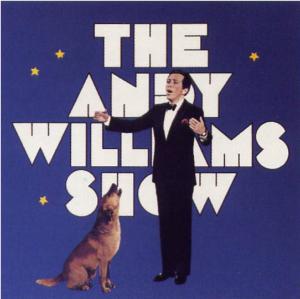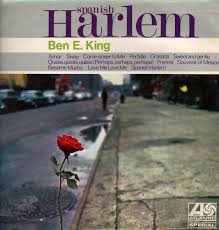
"On Broadway" is a song written by Barry Mann and Cynthia Weil in collaboration with the team of Jerry Leiber and Mike Stoller.

"I Say a Little Prayer" is a song written by Burt Bacharach and Hal David for Dionne Warwick, originally peaking at number four on the U.S. Billboard Hot 100 pop singles chart in December 1967. On the R&B Singles chart it peaked at number eight.

"Freeway of Love" is a song by American singer Aretha Franklin. It was written by Jeffrey Cohen and Narada Michael Walden and produced by the latter for Franklin's thirtieth studio album Who's Zoomin' Who? (1985). The song features a notable contribution from Clarence Clemons, the saxophonist from Bruce Springsteen’'s E Street Band. Sylvester, Martha Wash, and Jeanie Tracy provided backup vocals on "Freeway of Love".
"Chapel of Love" is a song written by Jeff Barry, Ellie Greenwich and Phil Spector, and made famous by The Dixie Cups in 1964, spending three weeks at number one on the Billboard Hot 100. The song tells of the happiness and excitement the narrator feels on her wedding day, for she and her love are going to the "chapel of love", and "[they'll] never be lonely anymore." Many other artists have recorded the song.

"Until You Come Back to Me (That's What I'm Gonna Do)" is a song written by Morris Broadnax, Clarence Paul, and Stevie Wonder. The song was originally recorded by Stevie Wonder in 1967, but his version was not released as a single and did not appear on an album until 1977's anthology Looking Back. The best-known version of this song is the 1973 release by Aretha Franklin, who had a million-selling top 10 hit on Billboard charts. The song reached No. 1 on the R&B chart and No. 3 on the Hot 100 chart in 1974. It became an RIAA Gold record.
"I'm in Love" is a song written by Bobby Womack. It was first recorded by Wilson Pickett in 1967, which gave him a top-ten R&B hit on Billboard's chart in 1968, peaking at number 4 as well as peaking at number 45 on the Billboard Hot 100.
"Don't Play That Song (You Lied)" is a song written by Ahmet Ertegun and Betty Nelson, the wife of soul singer Ben E. King. It was first recorded by King and was the title track on his third album Don't Play That Song! (1962). The song reached number 2 on the U.S. R&B singles chart and number 11 on the pop chart when released as a single on Atco Records in 1962. In Europe, it ranked at #10 in Italy on FIMI National Charts between 1962 and 1963.
"Ruby Baby" is a song written by Jerry Leiber and Mike Stoller. It was originally recorded by the Drifters. Their version was released as a single by Atlantic Records in 1956. It peaked at No. 10 on the US Hot R&B chart.

"There Goes My Baby" is a song written by Ben E. King, Lover Patterson, George Treadwell and produced by Jerry Leiber and Mike Stoller for The Drifters. This was the first single by the second incarnation of the Drifters, who assumed the group name in 1958 after manager George Treadwell fired the remaining members of the original lineup. The Atlantic Records release was Ben E. King's debut recording as the lead singer of the group.

Aretha's Greatest Hits is the third compilation album by American singer Aretha Franklin. Released on September 9, 1971, on Atlantic Records, the compilation contains three new recordings: "Spanish Harlem", "You're All I Need to Get By" and "Bridge Over Troubled Water".

"Poison Ivy" is a popular song by American songwriting duo Jerry Leiber and Mike Stoller. It was originally recorded by the Coasters in 1959. It went to No.1 on the R&B chart, No.7 on the Billboard Hot 100 chart, and No.15 in the UK. This was their third top-ten hit of that year following "Charlie Brown" and "Along Came Jones".
"I (Who Have Nothing)" (sometimes billed as "I Who Have Nothing") is an English language cover of the Italian song "Uno dei Tanti" (English: "One of Many"), with music by Carlo Donida and lyrics by Giulio "Mogol" Rapetti. The initial version, "Uno dei Tanti", was performed by Joe Sentieri in 1961. The song first recorded in English by Ben E. King in 1963 with new lyrics by Jerry Leiber and Mike Stoller.

"When the Lovelight Starts Shining Through His Eyes" is a song written by Holland–Dozier–Holland and recorded in 1963 by Motown singing group The Supremes. It is notable as the Supremes' first Billboard Hot 100 Top 40 recording, following seven previous singles between January 1961 and September 1963 which failed to enter the Top 40. The single is also notable as the first Supremes single written and produced by Holland–Dozier–Holland, who had previously created hits for Martha and the Vandellas and Mary Wells.
Lucky Lips is a song written by Jerry Leiber and Mike Stoller. It was originally recorded by Ruth Brown in 1956 and was successfully covered by Cliff Richard in 1963.
"Call Me" is a song written and recorded by American singer Aretha Franklin. The song was co-produced by Jerry Wexler, Tom Dowd and Arif Mardin.
"Share Your Love with Me" is a song written by Alfred Braggs and Deadric Malone. It was originally recorded by blues singer Bobby "Blue" Bland. Over the years, the song has been covered by various artists, most notably Aretha Franklin who won a Grammy Award for her 1969 rendition. Other artists who covered the song include The Band in 1973, Kenny Rogers in 1981, and most recently, Van Morrison in 2016.
"I Wonder" is a 1944 song written and originally performed by Pvt. Cecil Gant. The original version was released on the Bronze label, before Gant re-recorded it for the Gilt-Edge label in Los Angeles. The record made it to number one on the Juke Box Race Records chart and was Pvt. Gant's most successful release. In February 1945, pianist, Roosevelt Sykes hit number one with his version of the song. Sykes' version is notable in that it replaced Gant's version, at number one on the Juke Box Race Records chart.
"Don't Cry Baby" is a song composed by James P. Johnson, with lyrics by Saul Bernie, and Stella Unger. The song was first recorded on October 11, 1929 by Bessie Smith, who was accompanied on piano by Johnson. The song was revived in 1943 by jazz bandleader Erskine Hawkins, who greatly simplified Johnson's original composition by removing both the introductory (sectional) verse and the "B" section of the chorus. This simplified arrangement formed the basis of most later recordings on the song. Throughout the late 1940s and 1950s, the song was recorded fairly regularly, but was not a hit again until Etta James recorded it in 1961. Between 1962 and 1964, versions were released by James Brown, Aretha Franklin, and Ray Charles. Since the mid-1960s, the song has been occasionally revived.

The Andy Williams Show is the twenty-sixth studio album by American pop singer Andy Williams that was released in the fall of 1970 by Columbia Records. In his review on AllMusic.com, William Ruhlmann writes that "The Andy Williams Show LP was not a soundtrack recording from the TV series, and it was not really a live album, although it gets categorized as such. What appears to be the case is that Columbia Records took a group of Williams' studio recordings, most of them made during the summer of 1970 and consisting of his versions of recent soft rock hits, and added a lot of canned applause along with some of the kind of musical interludes used to usher numbers on and off on the show, including bits of its "Moon River" theme music at the start and the finish."

"Fools Fall in Love" is a song by Jerry Leiber and Mike Stoller. It was originally recorded by the Drifters, who took it to number 10 on the R&B chart in 1957. The song reached number 69 on the Billboard Hot 100.










